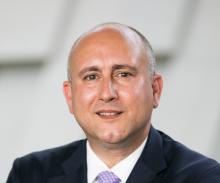Saudi Arabia’s equity markets officially joined the FTSE Russell and S&P Dow Jones Emerging Market (EM) indices on March 18, 2019, marking the culmination of four years of hard work by the exchange and Saudi regulators. This first stage is a precursor to full membership of both, as well as the more important MSCI Emerging Market Index, which is tracked by $1.9 tn of funds. By the end of this year, Saudi Arabia will comprise around 2.7 percent of the emerging markets universe.
The Saudi stock exchange and its regulators have been working hard since 2015 to earn the upgrades, allowing investors from abroad to trade directly, introducing new corporate governance rules and adopting global standards. The achievement is a major one, bringing the nation’s equity market from a standing start to emerging markets inclusion.
Predictions of the results of inclusion have been universally positive: a large wall of international passive and actively managed capital sweeping into Saudi Arabia; a new imperative for firms to raise their IR game; a new window on the world for a fast-changing and ambitious nation; and an unprecedented inward investment flow. And all this takes place against the backdrop of Vision 2030, the transformation agenda taking Saudi Arabia into an open, internationally focused and accessible country.
So the stage would seem to be set for a universally positive capital market milestone. And yet much of the commentary around the index inclusion has focused not on these positives, but instead on the behavior of domestic investors, including government-related institutions, which have been selling stocks just as the foreign funds have been arriving to buy: Saudi EM inclusion begs question about elephant in the room ran the headline on Bloomberg.
The facts are straightforward and tell their own story. Foreigners were net buyers of $430 mn in the week ending March 14. This is a new record high for foreign net buying in the Saudi market. Foreign investors are now net buyers of $2.6 bn in the year to date.
Gulf Cooperation Council (GCC) investors, by contrast, remained net sellers for the fifth consecutive week. Together with their regional peers, Saudi government-related entities were also net sellers, after very limited trading in recent weeks. This pattern has been repeated throughout 2019, with overseas investors being net buyers of Saudi stocks, while Saudi and GCC investors have been net sellers.
There are some mundane and obvious reasons for this pattern. Saudi stocks carry a higher valuation than other regional markets, so value is perceived to lie elsewhere: Saudi stocks trade on a forward multiple of 15 times earnings, compared with global emerging markets, which trade at just 12 times. Other markets, on inclusion in the EM indices, have typically declined before they rose for similar reasons. Saudi has had its share of negative headlines in recent months and this behavior by locals fits the old investment wisdom: buy the rumor, sell the news.
There is also the role played by the Saudi state in calming volatility: historically, when investors hurriedly sold out of their Saudi positions at times of geopolitical uncertainty, the government stepped in, acting as a buyer of last resort and calming the markets. One of the objectives of opening up the country’s Tadawul exchange to foreign investors is to cancel the need for this by developing a deeper, more liquid market.
Even so, this week has seen a lopsided trade, with all the buying being done by foreigners and all the selling by locals. This has not gone unnoticed, of course: Arqaam Capital argued in a research note on March 4 that international institutional investors have suggested in meetings ‘that they are likely to take an underweight position in the market, mainly on valuation grounds and potential concerns about government-related entities selling into the event.’
So if the smart international investors are holding back, who was a net buyer of $430 mn in one week? The answer is the qualified foreign institutions (QFIs) – the investment institutions registered with (and regulated by) the Saudi Capital Market Authority. In other words, the buying firms tend to be those that have made a long-term commitment to Saudi Arabia, establishing offices and staff there, and actively trading on the Tadawul on behalf of their clients.
QFIs are a new phenomenon in Saudi: they have only been recognized for a few years; with index inclusion they will now come into their own as a major force, deepening and underpinning the market. And once the initial imbalance caused by the index inclusion event has passed, QFIs will be more important than ever. Needless to say, they should also be the first target of every head of investor relations in Saudi Arabia.
Oliver Schutzmann is CEO of Iridium Advisors










